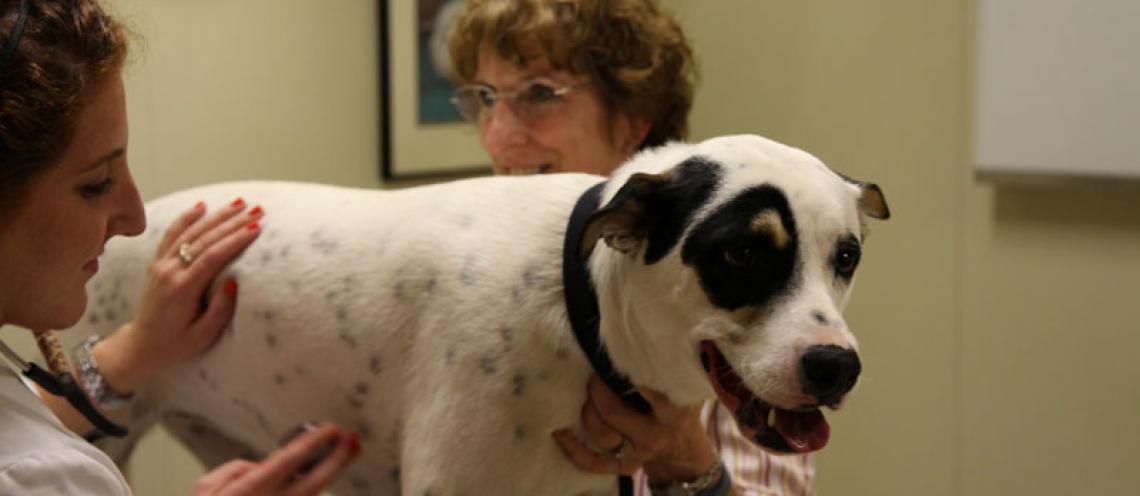
Veterinary Viewpoints
Friday, March 11, 2016
Visiting the Veterinarian
Some pets find a visit to the veterinarian stressful. Here are some tips from the American Veterinary Medical Association that may help make veterinary visits better for everyone involved.
Accustom your pet to its carrier and to traveling in the car. Take your pet on a ‘fun’ trip, consider a favorite park or to visit a playmate. You don’t want your pet to only associate the car with a trip to the veterinarian.
If your veterinarian doesn’t already have your pet’s medical records on file, bring it with you or ask a previous veterinarian to fax the records. At a minimum, bring your own notes on your pet’s medical history.
Arrive on time or better, a few minutes early for your appointment. This will give you time to take your pet to the bathroom before going inside. It will also give your pet time to get accustomed to the office.
Unless your children can sit quietly without distracting you or interfering with your veterinary team’s work, consider leaving them with a sitter. You want to be able to give your veterinary team your undivided attention when it involves your beloved family member.
Turn your cell phone off while you are in the exam room.
Know what medications your pet is receiving. This includes supplements. It is important to know how much, how often and long the medication is given. You can also choose to bring any medications with you.
Share your observations and concerns with your veterinarian. After all, you know your pet better than anyone else does.
Ask questions. Don’t be shy and ask until you understand. Ask for handouts, brochures or even reputable online sources of information about your pet’s condition.
Finally, follow your veterinarian’s recommendations. They’re given for one very important reason – to keep your pet healthy.
Veterinary Viewpoints is provided by the faculty of the OSU Veterinary Medical Hospital. Certified by the American Animal Hospital Association, the hospital is open to the public providing routine and specialized care for all species and 24-hour emergency care, 365 days a year.
